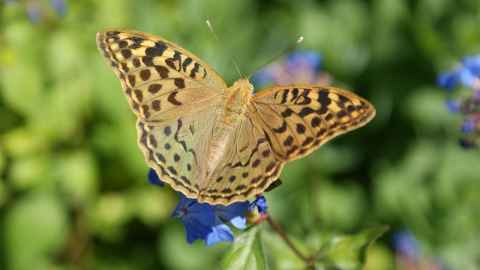Biodiversity key to improving food production
17 October 2019
One of the largest international studies ever done has found the more diverse animal, insect and plant life is on food-producing land, the more productive the land is and the less need for fertilisers or pesticides.

Over the past two decades, approximately 20 percent of the Earth’s cultivated surfaces have become less productive, according to the United Nations’ Food and Agriculture Organization report.
Now a multi-national, multi-institutional study involving more than 100 scientists has shown that biodiversity benefits agricultural food production on a global scale.
The international science team analysed data from around 1,500 agricultural fields worldwide, from corn fields in the North American plains to oilseed and rape fields in southern Sweden.
The resulting ‘metastudy’ found the benefits to farming provided by two main natural ecological processes - pollination and natural predators of harmful insects - was greater where diversity of crops, hedges, trees and meadows was also greater.
Conversely, monocultures (where one crop or farming activity predominates) are the cause of roughly a third of negative effects on pollination, as measured by ‘pollinator richness’ (the variety of insects available as pollinators).
That effect is made even worse with human control of harmful insects through pesticides or insecticides because these chemicals also kill the natural enemies of harmful insects. The study found this ‘natural enemy richness’ represents around half of all landscape simplification.
Julia Schmack, a PhD student at the University of Auckland, contributed data to the study from her research on the beneficial effect provided by birds and bats in coffee plantations on Mount Kilimanjaro in Tanzania.
She says diversifying crops and landscape is the best way to ensure farming is sustainable while also ensuring protection of biodiversity.
“This study is truly global in scale and it clearly shows that biodiversity is essential for agricultural food production and we have to think about sustainable ways to produce enough food for an increasing human population.”
The full research paper Biodiversity Improves Crop Production is published in Science Advances.
Media contact
Anne Beston | Media adviser
DDI 09 923 3258
Mob 021 970 089
Email a.beston@auckland.ac.nz